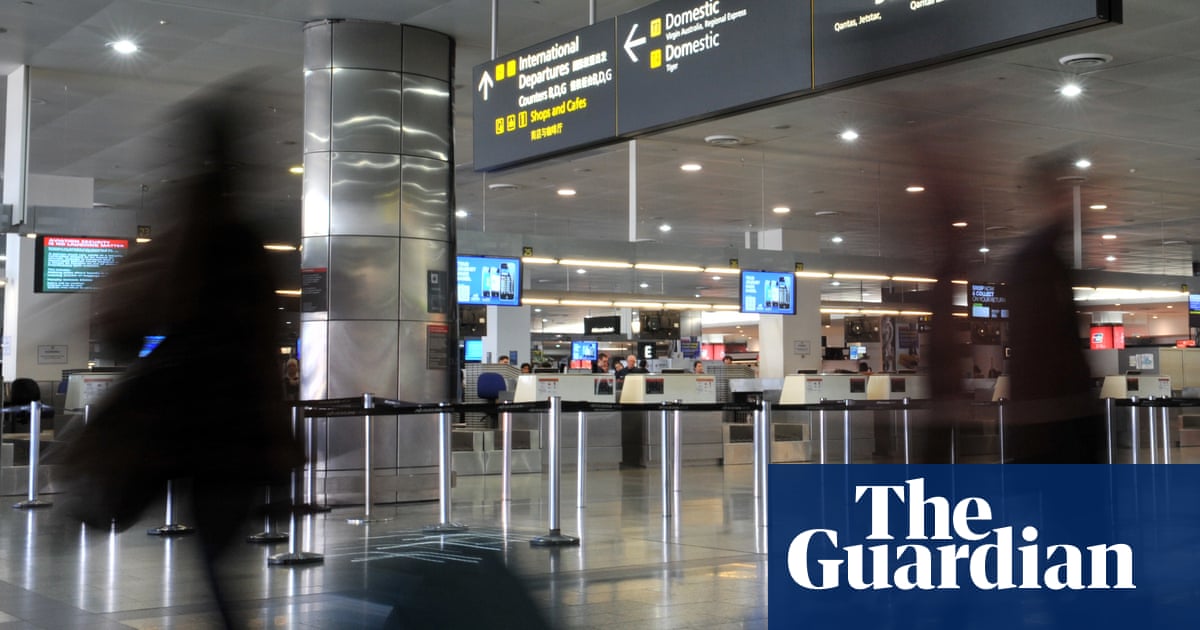Passengers are facing delays, scheduling changes and even cancellations as airlines recalibrate their plans to avoid a large chunk of Middle Eastern airspace.
Since Israel launched missiles at Iranon 13 June, airlines have been taking alternative routes in order to stay away from parts of the region including Iran, Iraq, Syria, Israel and parts of Jordan.
Theconflict is escalatingas many Australians prepare for trips to Europe during the northern hemisphere summer. If you’re one of them, how will the airline disruptions affect you?
It all depends on the airline you plan to fly with, and which route your flight is taking from Australia to Europe.
The aviation expert Prof Rico Merkert says airlines that stop over in the Middle East, such as Qatar, Emirates and Etihad, are likely to be affected.
“For sure there will be quite a bit of delays and possibly the odd cancellation,” Merkert, the deputy director of the University of Sydney’s Institute of Transport and Logistics Studies, says.
“Getting to the Middle East is probably still OK but once you get there it might be a bit hectic … with the potential for detours and delays.
“And, obviously, flying to Iran at the moment is not possible.”
For example, Emirates typically flies from its home airport in Dubai into continental Europe using Iranian airspace, Merkert says, “so they’ll need to detour”.
“It’s not just Iranian airspace, it’s also Iraq, Syria and part of Jordan as well,” he says. “Essentially, everything that’s between Israel and Iran, because they do keep sending missiles to each other.”
Emirates was contacted for comment, but did not respond by deadline.
Qantas, which operates flights to London direct from Perth or via Singapore from Australia’s east coast, has indicated it is monitoring the situation and says it will alter its flight paths if necessary but has not made changes yet.
As Merkert points out in one example, a passenger on the daily QF1 flight from Sydney to London via Singapore would avoid Middle Eastern airspace, as those flights go over central Asia.
However, the national carrier only flies from Australia to London. If you book with Qantas and want to go elsewhere in Europe, you’re likely to be flying with Emirates, its international partner.
Virgin only recently launched international flights, after entering intoa code-sharing agreement with Qatar, similar to the one between Qantas and Emirates. Qatar is headquartered in Doha, not far from Emirates’ base in Dubai.
As well as a partial ownership stake for Qatar, the alliance includes a so-called wet lease deal, whereby the Gulf carrier provides planes and crew to the Australian airline to operate weekly services to Doha under the Virgin brand.
Virgin on Monday indicated its wet-leased service to Doha remained unaffected but has not ruled out scheduling changes.
On Monday, a Qatar Airways spokesperson said the “evolving situation in the region” would “require some schedule changes”. The airline did not elaborate on what those changes involved but advised passengers to check its website for the latest information.
“We are continuously monitoring and assessing the situation, and reacting in real-time to ensure we operate under the safest conditions possible at all times,” the spokesperson said. “We have some of the best people in the business working behind the scenes to keep our network strong and secure, and to ensure we remain the airline you can trust and rely on.”
Etihad, another Gulf carrier, has suspended all flights between its base in Abu Dhabi and Tel Aviv until 15 July.
“This remains a highly dynamic situation, and further changes or disruption, including sudden airspace closures or operational impact, may occur at short notice,” a spokesperson said on Monday.
“Etihad continues to monitor developments closely in coordination with the relevant authorities and is taking all necessary precautions.”
Merkert says he expects Turkish Airlines flights to face similar problems, as the carrier typically uses Iranian airspace. The airline, which flies from Sydney to Istanbul and then onwards into Europe – with a stopover in Malaysia – has plans to further expand into the Australian market. The carrier did not respond before deadline to a request for comment.
Guardian Australia contacted more than a dozen airlines on Monday asking them what their plans were. Singapore Airlines had cancelled eight flights between Dubai and Singapore, “following a security assessment of the geopolitical situation in the Middle East”.
Thai Airways, which flies from Australia to Europe via Bangkok, said its services were not affected by the conflict. British Airways indicated its flights to Australia were operating as scheduled.
While airlines have assured passengers they are making plans to avoid Iranian airspace and other danger zones, Merkert says there are options for people who would prefer not to fly over the Middle East at the moment, pointing to airlines that fly to Europe via Asia without stopping over in a Gulf country.
“My daughter is currently en route to Europe,” he says. “But she flew with Singapore Airlines and so she flew via Singapore and from there to Frankfurt. That’s a route that takes you about an hour north of Iran.”
Merkert says another option could be flying to Europe via Japan.
“The problem at the moment though is the Ukrainian airspace is blocked too,” he says. “It’s probably safer, but it also takes additional time.”
